This month, The Hague Institute for the Internationalisation of Law (HiiL) announced the finalists for its Innovating Justice Awards. The top three justice innovations for 2012 were The Human Rights & International Criminal Law Online Forum, a partnership between International Criminal Court Office of the Prosecutor (ICC OTP) and UCLA School of Law; The National Justice in Your Community programme of Peru, a project that supports volunteer efforts of judges in their local communities to share their legal knowledge and experience; and Peace Tones, a project that works to protect the rights of world musicians through technology and education.
“Innovation is one of the important growth variables. We also see the rule of law as one of the most important factors in the welfare and well-being of the society,” stated Dr. Anne van Aaken, Innovating Justice jury chair and Max Schmidheiny Foundation Professor for Law and Economics, Public, International and European Law. “Justice innovations have the potential to contribute immensely to human welfare, just like technical innovation do.”
Thinking broadly, there are three categories of justice innovations. One focuses on providing education and access to the existing laws to the undeserved communities. There’s lots of misinformation out there. And those in greatest need tend to lack the resources necessary to access legal information. Those individuals also tend to have limited ability to sort through and comprehend the legal language in which this information is presented and have scarcity of means to act on it. Quite a few justice innovations nominated for the Awards focused on this category. Below are some examples:
Changing Italian legal services: the first “legal shops” on the high street in Italy where customers can walk in for legal advice, braking down the walls between a professional lawyer and her client.
Financial disputes centre in The Hague: a foundation established under Dutch law to resolve and assist judicial systems in the settlement of complex financial transactions disputes.
Legal education and empowerment through TV drama series: using popular TV culture to educate the public about legal rights.
Another category of justice innovation is aimed at improving the existing justice systems and laws. Change requires a lot of effort and community support, especially when people want to change the rule of law. Justice innovations that focus on change have to not only communicate the need for change to the broader society, but to also assist communities in getting those changes passed — support organizational efforts, facilitate negotiations of ideas within the communities striving for change, and help write and rewrite legal code and structures in an acceptable format. All of this is difficult to accomplish and very few justice projects focus their attention on this type of innovation. But here are some examples.
Disability rights tribunal for the Asia-Pacific: creation of a specialised tribunal for human rights focused on disabilities consistent with Asian conflict resolution values.
Access to justice for women in Kenyan property disputes: ensuring justice and property rights for widows living with HIV.
And finally, justice innovation can target the evolving environment of our society. Internet, instant communication, the changing nature of information creation and propagation, all contribute to vast cultural shifts that might not be supportable by legal systems written 100 years ago or even a few decades in the past. The social and cultural shifts happen on a completely different time scale from the slow moving adaptations of the rule of law. There is a lot of interesting work that can be done in this area. This is an area ripe with justice innovation possibilities. Here are some examples:
Encouraging social and environmental responsibilities: a system to encourage businesses to include an enforceable social and environmental mission in their corporate charter and operations.
Verified information for judges preventing unjust pretrial detention: supporting the reform of Mexico’s criminal justice system, establishing presumption of innocence allowing options for pretrial release.
Improving effectiveness of existing legal networks using SMS tools: leveraging the ubiquity of mobile phones to extend, connect, and improve dispute resolution services in underserved areas.
All three possible movements in justice innovation — access and education, change facilitation, and cultural targeting and adaptation — require external support. HiiL is an great position to provide that.
“HiiL is an incubator and knowledge generator and a place to create a spillover effects from innovations. It’s a venture midwife for legal innovators,” said Dr. Anne van Aaken.
HiiL’s mission is to provide crucial knowledge to make law work for people and their organizations: “We facilitate a community of Rule of Law entrepreneurs. We give voice to people and organizations who need innovative approaches so that their justice needs can be met. We help to identify challenges and realize sustainable solutions. We nurture promising innovations with knowledge, networks and tools.” (InnovatingJustice.com)
Innovating Justice Awards provide a platform to exhibit the grass-roots justice innovations happening all over the world. By highlighting the accomplishments of these individual projects, their work can be examined, shared, discussed, and adopted by other communities. These projects serve as living examples of what works and what doesn’t. They focus attention on the problems they are trying to fix and they demonstrate possible solutions. By giving them a platform, HiiL becomes an active agent of change.
In 2012, 39 projects were nominated for the Awards. That’s 39 examples of innovating justice. Of those, three were selected through online popular vote and three others were chosen by the previous Justice Innovation Award winners. The projects hailed from all over the world. Most worked to develop socio-technical solutions to the problems that faced their communities. All of the nominations can be seen at InnovatingJusticeAwards.com — a de-facto online library of innovating justice.
Each project is a culmination of thousands of hours of work, mostly by volunteers. Each is driven by passion and strong “we are doing what’s right” beliefs. One project, The Human Rights & International Criminal Law Online Forum (UCLAforum.com), has a distinction of supporting all three types of broad justice innovations. It serves as a reservoir of legal thinking on international criminal law. The Forum provides a space to voice opinions. To date, the Forum sponsored seven legal debates that not only presented the different sides of some very difficult issues coming before ICC, but focused attention on those issues. Among them: “Does the Prosecutor of ICC have authority over 2008-2009 Gaza conflict?”; “What obligations do countries have to act on arrest warrants for genocide?”; “What reparations are appropriate for mass atrocities and war crimes?”; “Do victims of mass rape have to testify?” These are very controversial questions.
The Forum also generates a history of the debates, serves as a legal library and an educational source for the supporting materials, and shines the light on the process of negotiating justice solutions that work for all.
While appearing simple, the Forum is a complex socio-technical system, carefully designed to support legal education and provide access to legal thought, to facilitate change in the legal landscape, and to highlight cultural differences and develop legal adaptations. It strives to achieve innovations across the whole spectrum justice. The Forum is able to do all that because of the dedication, support, and tireless work of people from ICC Office of the Prosecutor, UCLA School of Law group of legal researchers and students headed by Dr. Richard Steinberg, a duo of designers and programmers from Pipsqueak Productions, and Sanela Diana Jenkins, its generous founder (dianajenkins.com).
“Education, debate, and access are critical components of international criminal law,” Jenkins said. “I’ve lived through the horrors of war in my own country, and believe that the rule of law and international oversight are indispensable to preventing human rights abuses in vulnerable populations. Our project supports the work of ICC OTP and provides for transparency and openness of its decisions.”
Each of the 39 projects nominated for the Innovating Justice Awards owes its existence to a team of hard-working individuals, looking to change the world one justice innovation at a time. And HiiL’s attention on these justice innovations can help sustain those efforts and advance their goals in their own communities and in others, looking for new ways and new systems to achieve justice for all.

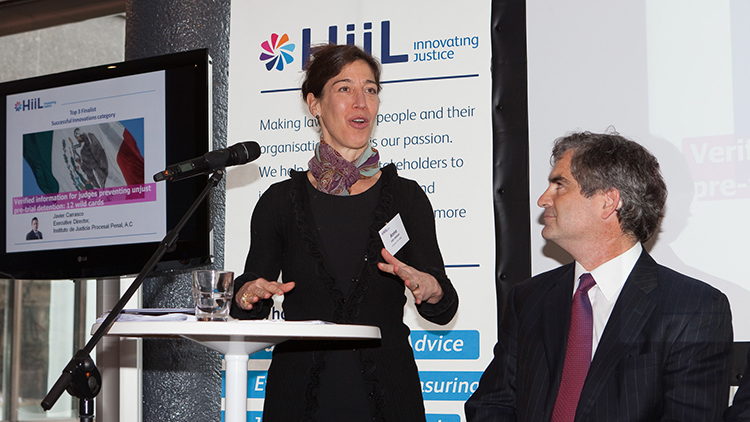

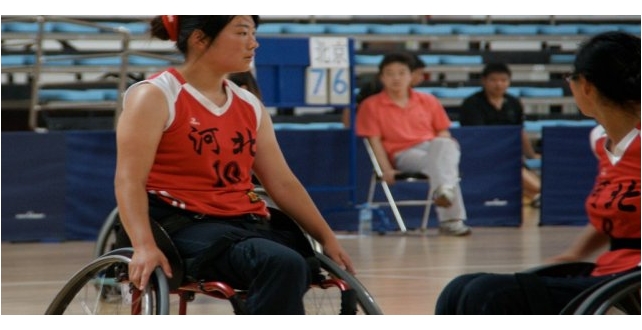
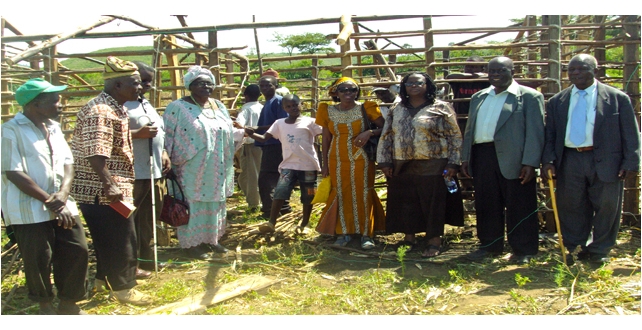

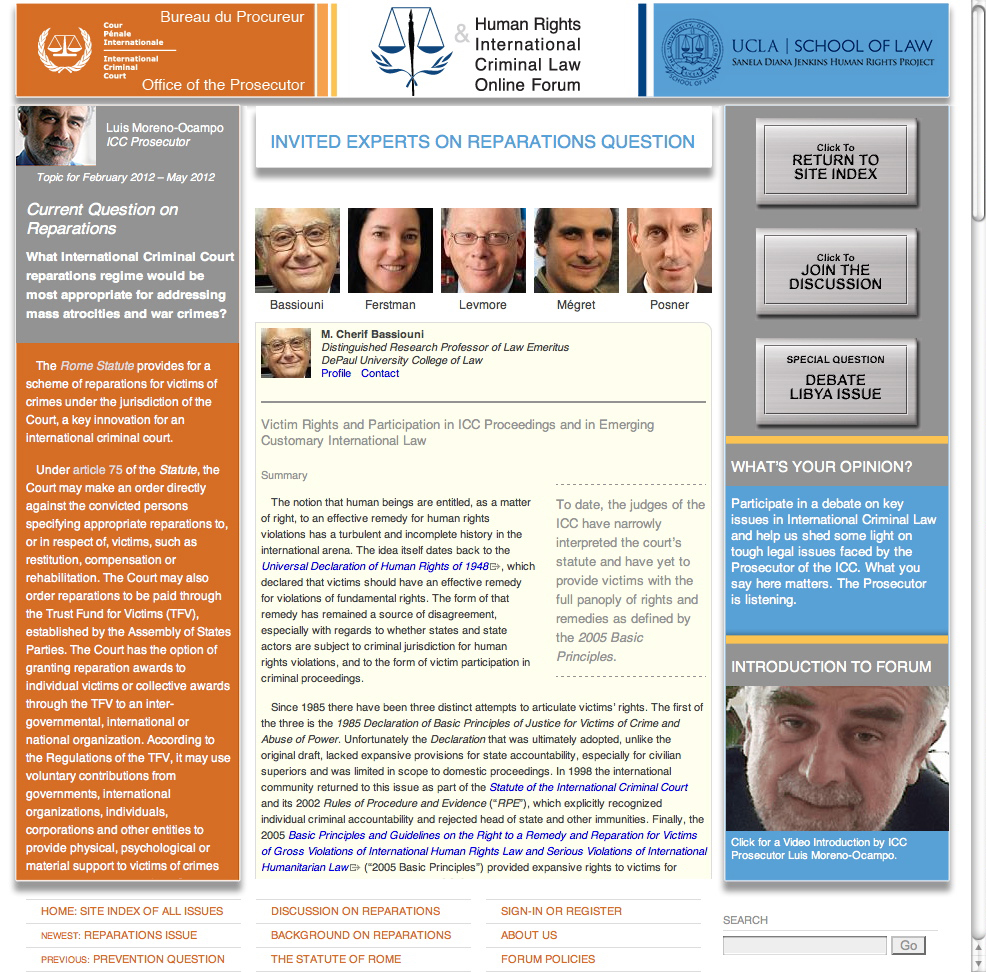
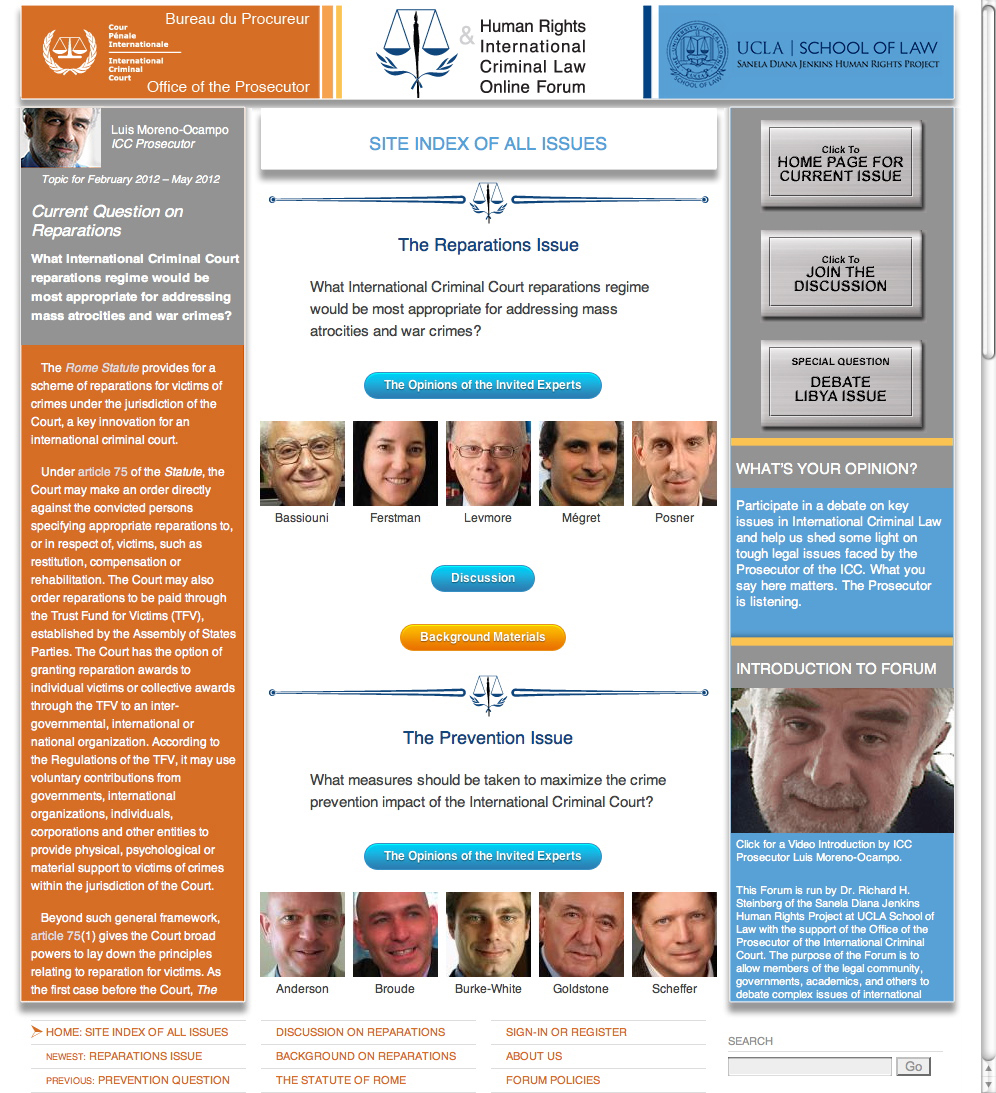
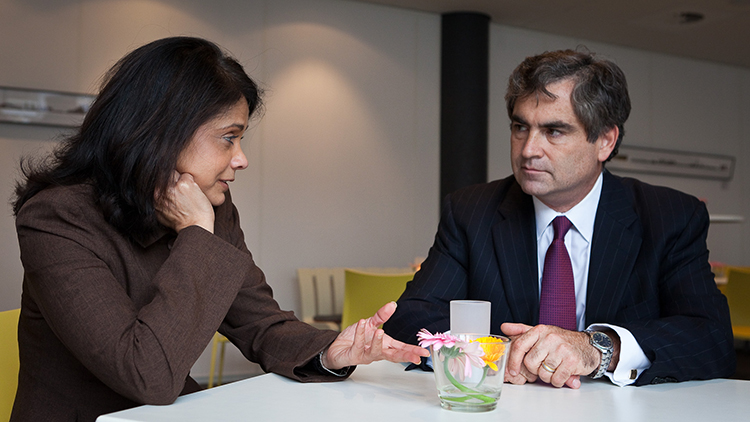
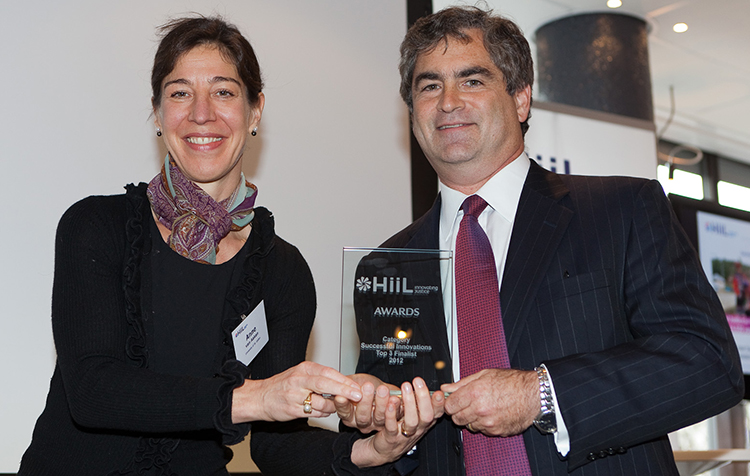
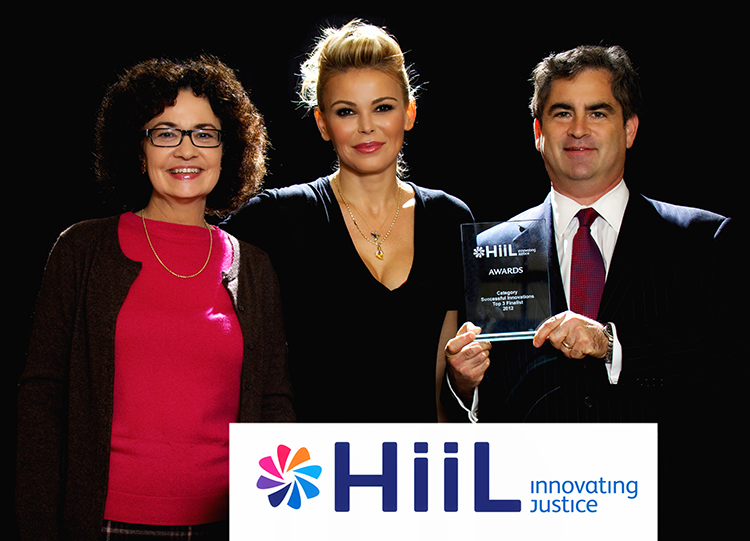
Sanela Diana Jenkins wrote an op-ed piece for The Huffington Post, talking about her view of these awards in relation to human rights: “Shining a Light on Human Rights and Justice Projects.”
Link: http://www.huffingtonpost.com/diana-jenkins/international-criminal-court_b_2200181.html